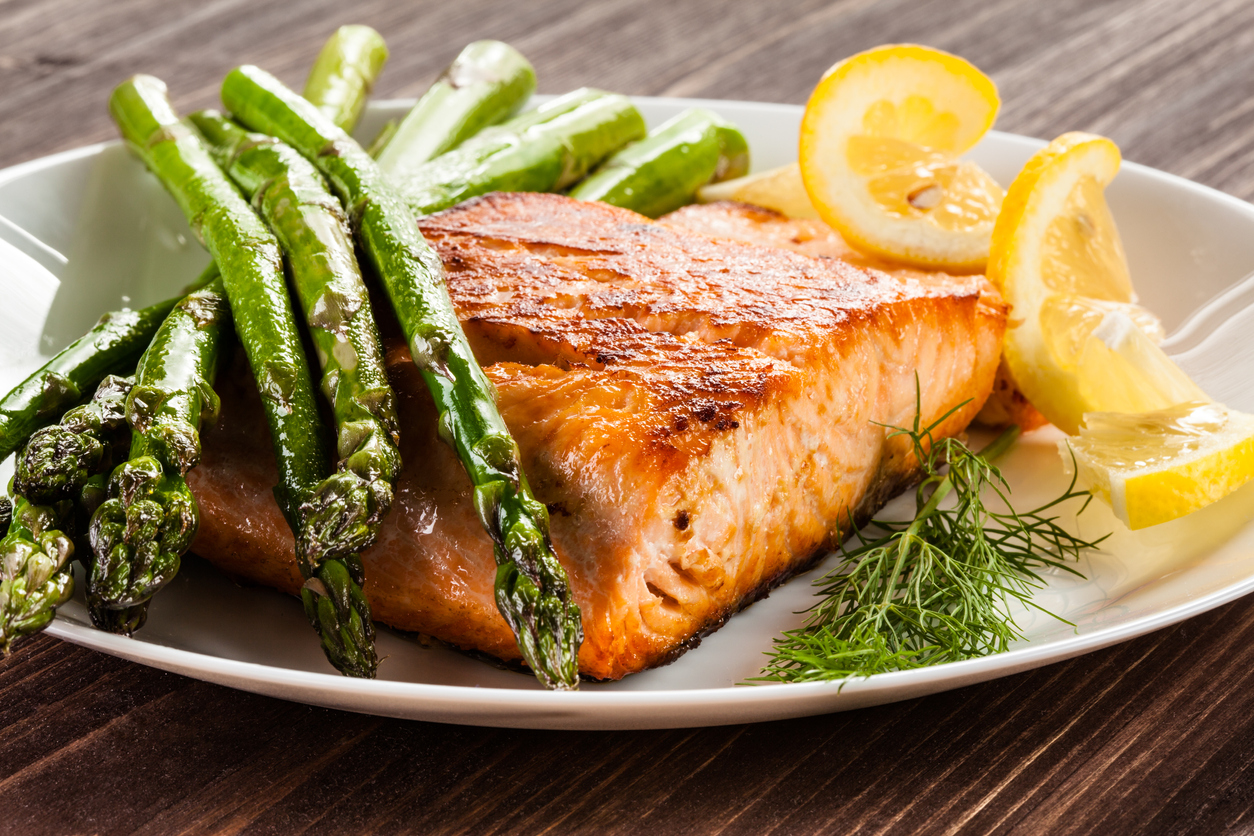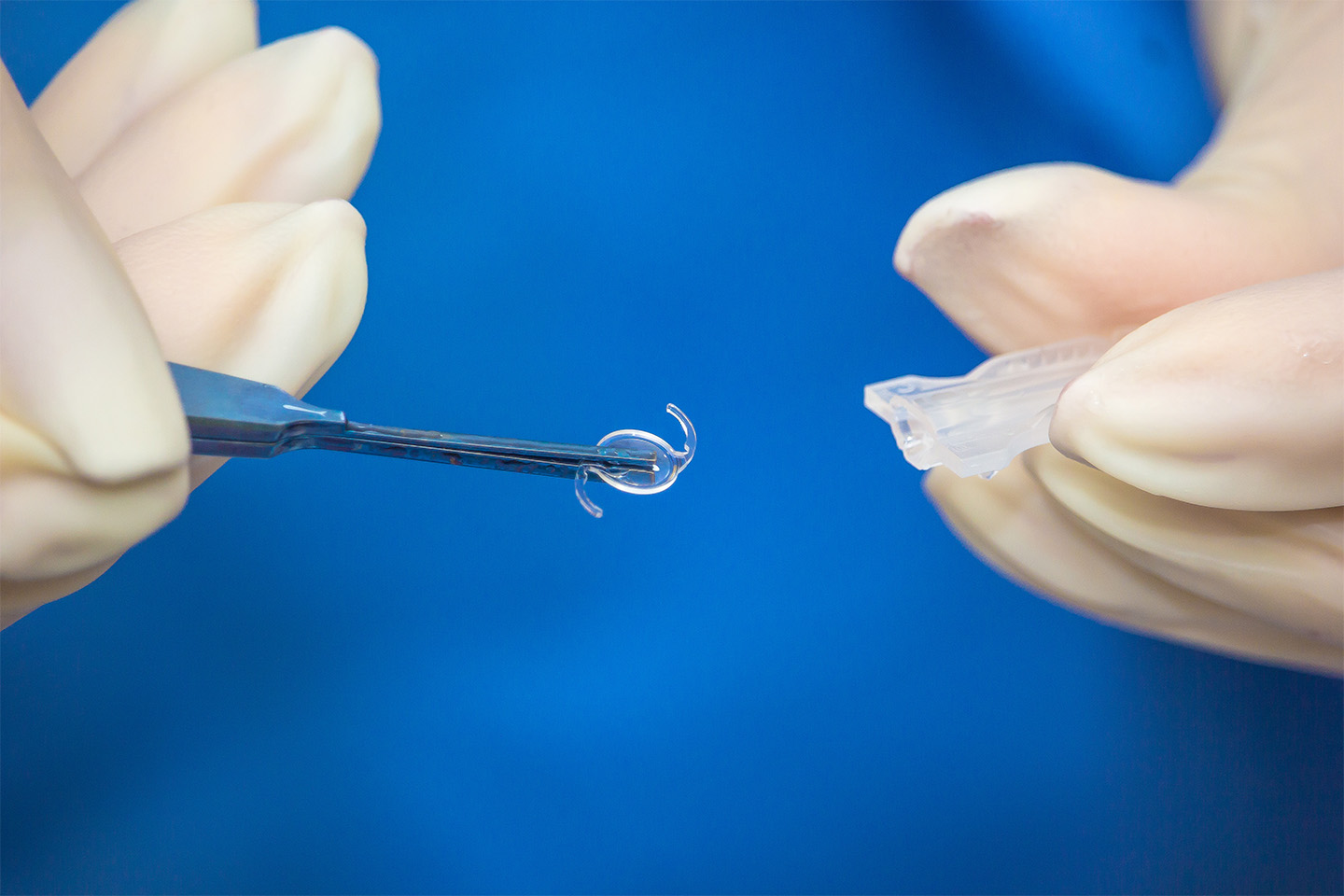10 Essential Foods to Improve Your Eye Health

A healthy diet is a key part of eye health. These fruits and vegetables can help protect your vision for years to come.
A proper diet is essential for maintaining a healthy weight and cardiovascular fitness. The foods you eat play a vital role in another aspect of your overall well-being you may not think about — your eye health.
A well-balanced diet packed with eyesight-boosting nutrients can help prevent vision disorders such as age-related macular degeneration, cataracts, dry eye, glaucoma, and poor night vision.
Foods rich in vitamins A, C, and E, the mineral zinc, and powerful antioxidants like lutein and zeaxanthin all contribute to clearer vision. Foods with generous amounts of omega-3 fatty acids and beta-carotene also help boost your eye health.
Incorporating those nutrients into your daily diet won’t be difficult. Here’s what to grab when you’re shopping for ingredients to preserve your vision.
10 Best Foods for Eye Health
Each of these foods boasts one or more nutrients that protect your eyesight. If possible, always buy fresh and avoid overly processed and packaged meals to ensure quality produce.
- Red Peppers. Munching a cup of this bright red vegetable gives you your daily allowance of vitamins A and C, both of which are important for eye health. Vitamin C strengthens your blood vessels, which decreases the risk of cataracts. Vitamin A, meanwhile, protects your eyes from a slew of eye problems including dry eyes, cataracts, and macular degeneration. Because heat saps vitamin C from red peppers, toss the veggie raw into your salad.
- Salmon. Fish like salmon (and tuna) possess a superior omega-3 fatty acid content. This good “fat” supports retinal health, while a deficiency of this nutrient increases the chance of dry eye. When shopping for salmon, choose wild-caught over farm-raised, which has a higher amount of saturated fat.
- Beef. A serving of lean beef contains zinc, a mineral found in the retina and the tissue surrounding the retina. As a result, adding zinc to your diet can help prevent macular degeneration.
- Sunflower Seeds. Two ounces of sunflower seeds contains the recommended 15 milligrams a day of vitamin E. How important is vitamin to eye health? A 2013 study done in Spain found that consuming high levels of vitamin E and C reduced the need for cataract surgery in patients 65 and older.
- Kale. This leafy green vegetable lives up to its hype as a superfood. Loaded with lutein and zeaxanthin, one-and-a-half cups of kale gives you the recommended 10 milligrams per day of those antioxidants that protect against macular degeneration and cataracts. In addition to lutein and zeaxanthin, kale and other green vegetables like spinach and collard greens contain vitamins C and E.
- Carrots. You only need two servings of carrots a day to reach the recommended daily amount of vitamin A. Carrots also contain beta-carotene, which strengthens the eye’s surface and prevents macular degeneration.
- Sweet Potatoes. This orange-hued vegetable is filled with vitamin A and beta-carotene. Taken together, those two nutrients enable your eyes to adapt to darkness, boosting vision to help you drive at night.
- Nuts. Nuts are a good source of omega-3 fatty acids as well as vitamin E, both of which help prevent age-related macular degeneration and cataracts. Half of the daily recommended amount of vitamin E comes in just one ounce of almonds. Walnuts, cashews, and peanuts are also good alternatives.
- Eggs. Eggs are filled with eye-boosting nutrients — vitamins C and E, zinc, and lutein and zeaxanthin can all be found in an egg. These compounds protect the retina from damage from blue light and strengthen the protective pigment vital for your central vision.
- Oranges. Oranges, like many citrus fruits, are packed with vitamin C. This vitamin provides two benefits: it keeps cataracts at bay by strengthening blood vessels and helps maintain the collagen in the cornea.
Caring for Your Eyes
In addition to a healthy, balanced diet, regular visits to your eye doctor can help protect your eyes and detect vision problems requiring treatment. From comprehensive eye exams to cataract surgery, the specialists at ICON Eyecare are here to help. Contact us today for an appointment.
Request An Appointment.
Give us a phone call at (970) 256-0400 Monday – Friday, 8am-5pm to schedule a consultation.










 (970) 256-0400
(970) 256-0400